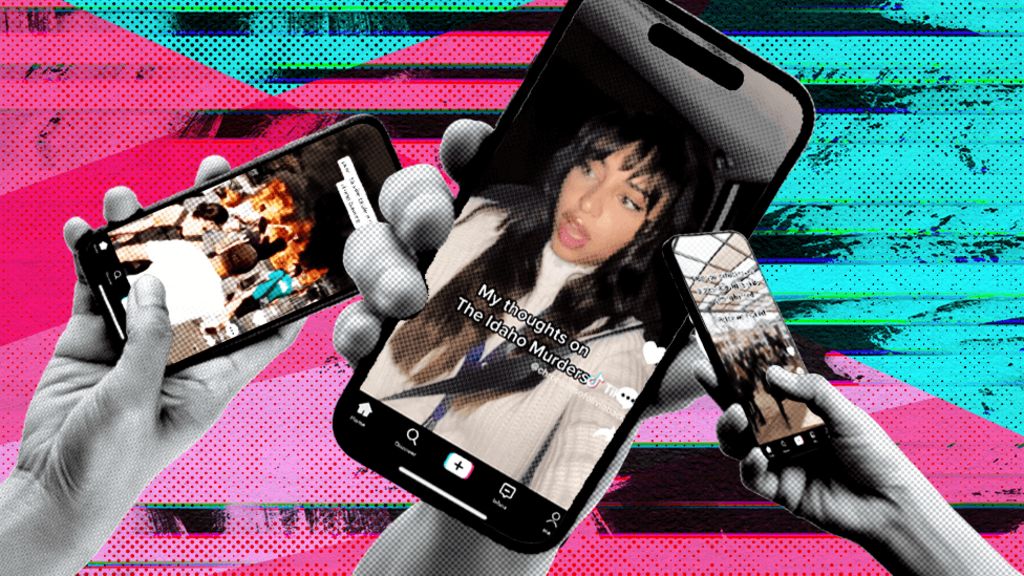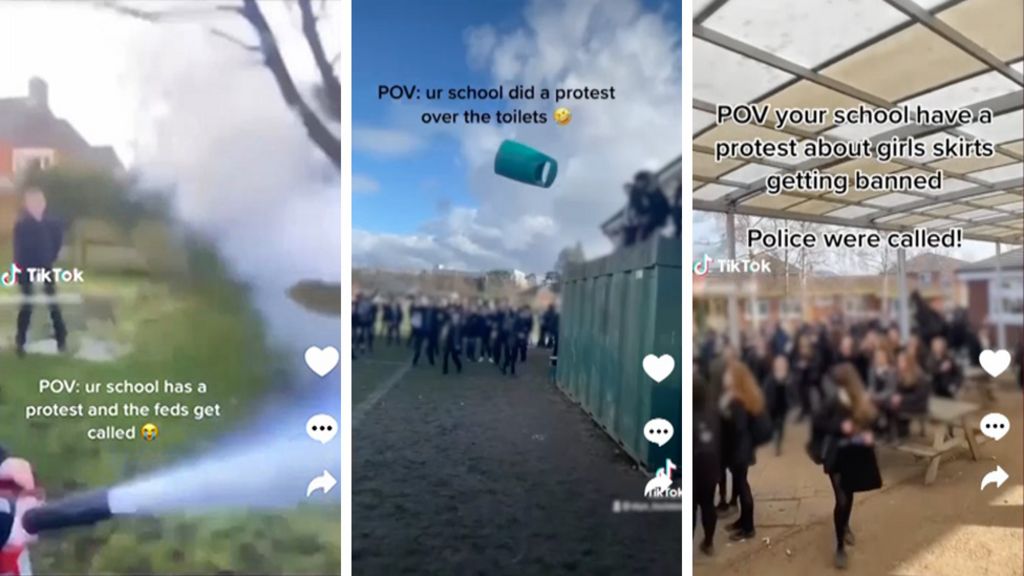There is no political "discussion" on TikTok. It's just a bunch of monetized short videos. It's easy to earn money on TikTok and that's why so much fake news proliferates. It's quick money for teens who love to spread "fake crime sleuthing", "fake psychic" news. One 13 year old was earning money from her dancing videos. She was then stalked and the guy showed up at their house. Apparently the dad killed the guy or something. Afterward, they allowed her to continue earning money on TikTok. (I wonder if she's the family breadwinner) YouTube is much better.
Teenage TikTok Influencer Confronted by Armed Stalker at Family’s Florida Home
If you’re a parent to a teenager, you’ve probably heard your fair share about the likes of TikTok, Snapchat, and Instagram. These social media platforms are particularly popular among teens, who use them to share photos and videos with friends or the public.
Connecting with school friends through video clips or heavily filtered photos seems innocent enough to most parents. For teens who have been quarantined or attending school remotely amidst the pandemic, it might even be the only social outlet they have.
Because of this, many parents have granted more access to these platforms than they would have otherwise. Unfortunately, however, teens on these platforms often share content publicly, so details of their lives are made available to everyone on the internet.
In July of 2021, one family came face-to-face with the consequences of their child’s social media popularity.
https://socialmediavictims.org/blog/tiktok-influencer-armed-stalker/
&ab_channel=NBC2News
A Child’s TikTok Stardom Opens Doors. Then a Gunman Arrives.
https://www.nytimes.com/2022/02/17/us/politics/tiktok-ava-majury.html
Inside Tiktok's real-life frenzies - from riots to false murder accusations

TikTok is driving online frenzies that encourage anti-social behaviour in the real world, a BBC Three investigation reveals.
Ex-employees say the issue is not being tackled for fear of slowing the growth of the social media app's business.
These frenzies - where TikTok drives disproportionate amounts of engagement to some topics - are evidenced by interviews with former staffers, app users and BBC analysis of wider social media data. They have then led to disruption and disorder in everyday life.
The BBC's investigation found that TikTok's algorithm and design means people are seeing videos which they wouldn't normally be recommended - which, in turn, incentivise them to do unusual things in their own videos on the platform.
However, the BBC has identified four episodes in recent months where disproportionate engagement on TikTok was connected to harmful behaviour:
An online obsession with a murder case in Idaho, USA, that led to innocent people being falsely accused
Interference in the police investigation of Nicola Bulley, who went missing in Lancashire, UK
School protests involving vandalism spreading across the UK
Fanning flames of riots in France, which spread at an unusual intensity and to unexpected locations
 https://www.bbc.com/news/technology-66719572
Hatescape: An In-Depth Analysis of Extremism and Hate Speech on TikTok
https://www.isdglobal.org/wp-content/uploads/2021/08/HateScape_v5.pdf
https://www.bbc.com/news/technology-66719572
Hatescape: An In-Depth Analysis of Extremism and Hate Speech on TikTok
https://www.isdglobal.org/wp-content/uploads/2021/08/HateScape_v5.pdf
 = new reply since forum marked as read
= new reply since forum marked as read

